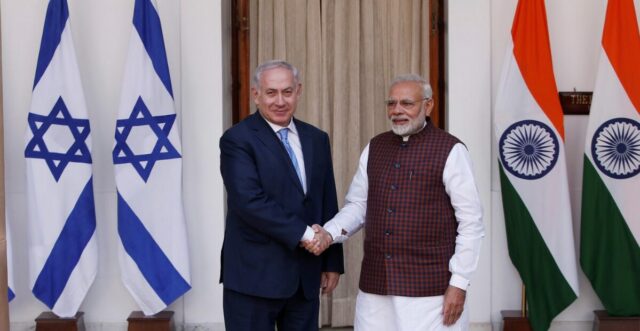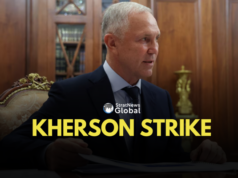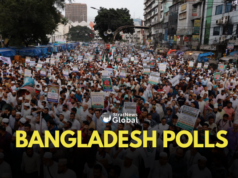Oct 7, 2023 is seen by some as a red-letter day in Indian diplomacy. In the wake of the Hamas attack on Israel’s southern settlements, Prime Minister Modi tweeted his support for the Jewish state:
“We stand in solidarity with Israel at this difficult hour. Deeply shocked by the news of terrorist attacks in Israel. Our thoughts and prayers are with the innocent victims and their families.”
Four days later he reiterated that support again on twitter.
“People of India stand firmly with Israel in this difficult hour. India strongly and unequivocally condemns terrorism in all its forms and manifestations.”
Later India began to calibrate its position, returning to the more familiar call for “restraint and de-escalation and peaceful resolution of the conflict through dialogue and diplomacy.”
“The balancing act reflected India’s diplomatic sensitivities,” said Mahesh Sachdev, former diplomat who headed the West Asia/North Africa Division of the External Affairs Ministry for many years.
“Nobody would like to be put in the position we are in. Our relations with the Sunni Arab Gulf states are strong. So too with Israel. Then we are thick with the Americans. So this ensemble of three powers pulled us towards them.”
It also mattered that within the establishment, there is no love lost for groups like Hamas and Hezbollah, that are seen as terrorist entities.
Ramanathan Kumar, who was in India’s external intelligence agency R&AW, told Stratnewsglobal in an interview after the Hamas attack last year, that there was no doubt it was knee-deep in terror activities backed by Iran.
The flip side is Hamas is not known to have targeted India or referred to this country in public statements. But it was born within a few years of the Pakistani terrorist group Lashkar-e-Toiba and both see the Markaz-Dawa-Wal-Irshad as their parent.
“At one point Hamas and the Lashkar even shared a website,” he said.
India has not designated Hamas a terrorist entity and will probably wait for a UN designation and then follow suit.
Apart from Iran, it’s not clear which other country could be backing Hamas or Hezbollah. Russia remains ambiguous, calling for a two-state solution and China, apart from the much publicised effort to reconcile Palestinian factions, has kept watch from the sidelines.
The major worry for India is will Israel and Iran go to war. India recently sent hundreds of workers on contracts to the Jewish state, and they will be in immediate danger requiring immediate evacuation.
Then there’s the question of oil prices, that have remained largely stable during the course of the Gaza war. It helped that Russia was offering discounts on the oil it produced, China was buying less oil for a host of reasons including lower growth, the US was exporting shale oil and Guyana also entered the oil market.
Iran is economically in no position to wage war. International sanctions have hit the economy hard. Israel too is suffering, having lost more men in Gaza than in the 1973 war with Egypt.
Its economy is in bad shape averaging 1.1% growth. Its industry is starved of qualified workers since they are in the army fighting Hamas and Hezbollah. Casualties are high. For a small nation, the cost is steep but there’s no sign of Israel wanting to end it.
India will be keeping its fingers crossed, hoping the war will peter out as wiser counsels prevail in Tel Aviv and Tehran.
Thirty eight years in journalism, widely travelled, history buff with a preference for Old Monk Rum. Current interest/focus spans China, Technology and Trade. Recent reads: Steven Colls Directorate S and Alexander Frater's Chasing the Monsoon. Netflix/Prime video junkie. Loves animal videos on Facebook. Reluctant tweeter.





